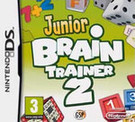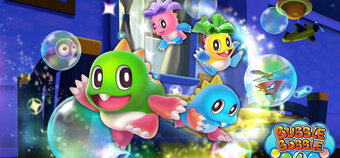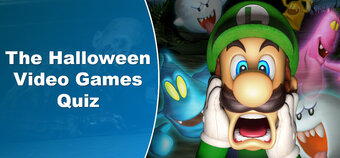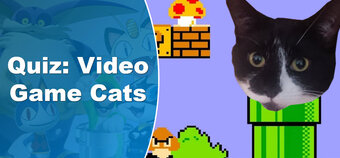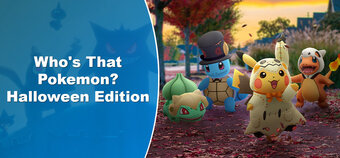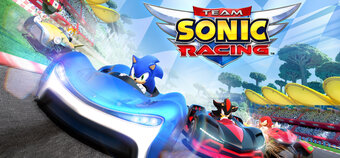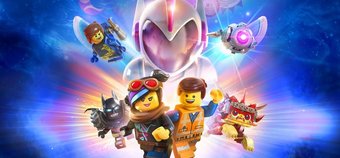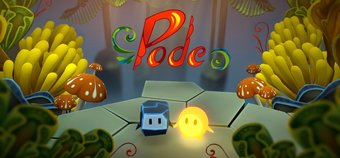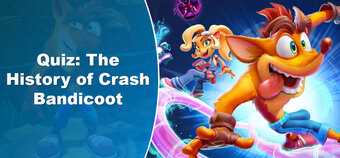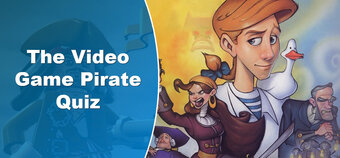At first glance, Junior Brain Trainer 2 seems like a great idea. A way of marrying educational software with the addictive, rewarding gameplay of Dr. Kawashima's Brain Training, all wrapped up in child friendly wrapping, with a cute and funky squirrel-type-thing guiding the way, Junior Brain Trainer 2 certainly seemed like an addictive prospect.
Delivering a mix of Maths and English based puzzles (Science gets excluded, somewhat strangely) Junior Brain Trainer 2 is aimed at 6 to 11 year old children, and aims to get their grey matter ticking over. Encouraging children to keep coming back, they'll start off with very little to play with - but every day that they return, and play through the main brain training mode (a set of five puzzles that takes between five to ten minutes to complete), they'll unlock a new mini game or reward.
In order to give the game a proper grilling, we tested the game out on our test child - a five year old, rapidly approaching six, who's considered as rather bright by most of her teachers, and who we therefore presumed would probably manage the puzzles that were aimed at the lower age of the age range. Selecting her age as six, we sat her down with the game, and casually observed as she started to play.
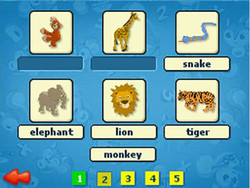
Educational and fun!
The first game she was presented with was a simple one, and one that was completely suited to her age. Presented with six small pictures, and six descriptions, it was up to her to look at each picture, and drag and drop the relevant description from the bottom of the screen onto each picture. Testing her reading skills, she passed this game fairly easily, and actually seemed to be really enjoying herself. Being able to do a puzzle like that was really helping to boost her confidence, which was something that was great to see.
However, it was then that Junior Brain Trainer hit its first bump. The next question asked our test subject to do a long multiplication, which, as a five year old, was something she'd never even seen before, and something that, according to our research, she wouldn't usually have to touch upon until Year 4.
And it's this that's Junior Brain Trainer's biggest flaw. Seemingly flitting from questions that would challenge an 11 year old, to something too easy for a five year old in the space of two questions, there's no real difficulty level that increases, so the game doesn't challenge your child as they get better. While you'd imagine that a game, with such a large target age range, that's aimed at an audience that's learning a heck of a lot as each year goes by, would limit the questions it asks quite strictly between the various age levels, instead, the age your child chooses seems to make next to no difference. Setting up a second profile as an eleven year old, we were asked almost exactly the same questions again, which makes very little sense.
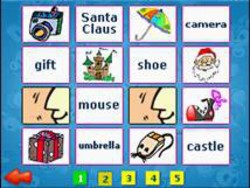
While the pairs game may not be the most educational game here, most games will get your child's grey matter working - if they can manage it!
More confusing for us, when we lent over to try and help out, was that the maths sums have to be done in a very rigorous, and specific way. Giving you a number of empty boxes, both above and below the equation, and a number of cards below that which have the numbers 0 - 9 written on them, you'll have to carry, and cancel them in the way the game wants - which isn't necessarily the same way that you, or your child will have been taught. Whereas, if we were having to cancel a number in the tens column, we'd cross that out, subtract one, and write the new number above it, on this, you have to add an extra one to the bottom of your equation instead, so 82 - 16 becomes 12 - 6, and 8 - 1 - 1 rather than 7 - 1.
The rest of the games also seem rather varied, with some that seem so educational, it feels like you're sitting in a classroom, while others seem to be of no educational value at all. While the tessellation mini game, where you have to complete a repeated pattern using a number of tiles, shows solid maths skills, and a sentence construction game, which tests how well your child knows there/their and they're, or weather and whether, is incredibly useful for helping to boost your child's English skills, a word game, where you have to complete a number of words, using only their first and last letter seems so much like pure guess work, it's hard to see how it's testing anything at all - other than your ability to read the game's mind. Starting out with T _ _ _ K, we guessed our way through, trying pretty much every single letter in place until it accepted them (as that's practically the only way to progress), until it settled on T R U _ K. Thinking we had this sorted, we slotted the C into the correct place, to spell "TRUCK". Nope. Even though we'd constructed a word using the letters available, we hadn't created the right word, which was TRUNK. With no clues available, there's no way to know what it is the game wants you to do, so whereas it could have been either a crossword style game, or a slightly more restrictive version of Scrabble, it turns out just being pure guess work.
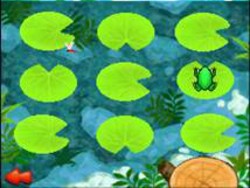
Complete the Brain Training mode each day, and you'll unlock a new mini game - but as a parent, you'll want to know that your children aren't spending all their time playing these!
As a parent, it's also important to know how your child's progressing - if they're spending time with the game, it's nice to know how they're doing; what they're getting wrong, what they're getting right; which areas are their strengths, which are their weaknesses, and how long are they spending doing each thing? It's a tad surprising, then, that Junior Brain Trainer 2 doesn't feature any sort of log of what your children are up to. It doesn't even give feedback to them about how they're doing. While Brain Training gives you a bar chart showing how well you did on the last challenge compared to last time, Junior Brain Trainer 2 instead simply has the squirrel yell "YOU'RE GREAT", or words to that effect after every puzzle. And while we accept that the squirrel can't exactly turn into a cuddly Simon Cowell, it would be nice if it'd at least let the parent track the child's progress, even if it doesn't let the child see it.
As a piece of educational software, Junior Brain Trainer 2 is sadly flawed, as it's pretty difficult to find a child of the right age to play. Someone who's towards the 10 - 11 range will likely find a lot of it too easy, whereas our test 5 year old was stumped on the second puzzle. It's this failure to streamline the puzzles into suitable age ranges that leaves Junior Brain Trainer 2 being hard to recommend for anyone whose child doesn't come right in the middle of the 6 - 11 age range - and it's a real shame, as some of the puzzles had some real educational merit.
Here's hoping Junior Brain Trainer 3 can improve where this one went wrong.
Format Reviewed: Nintendo DS


